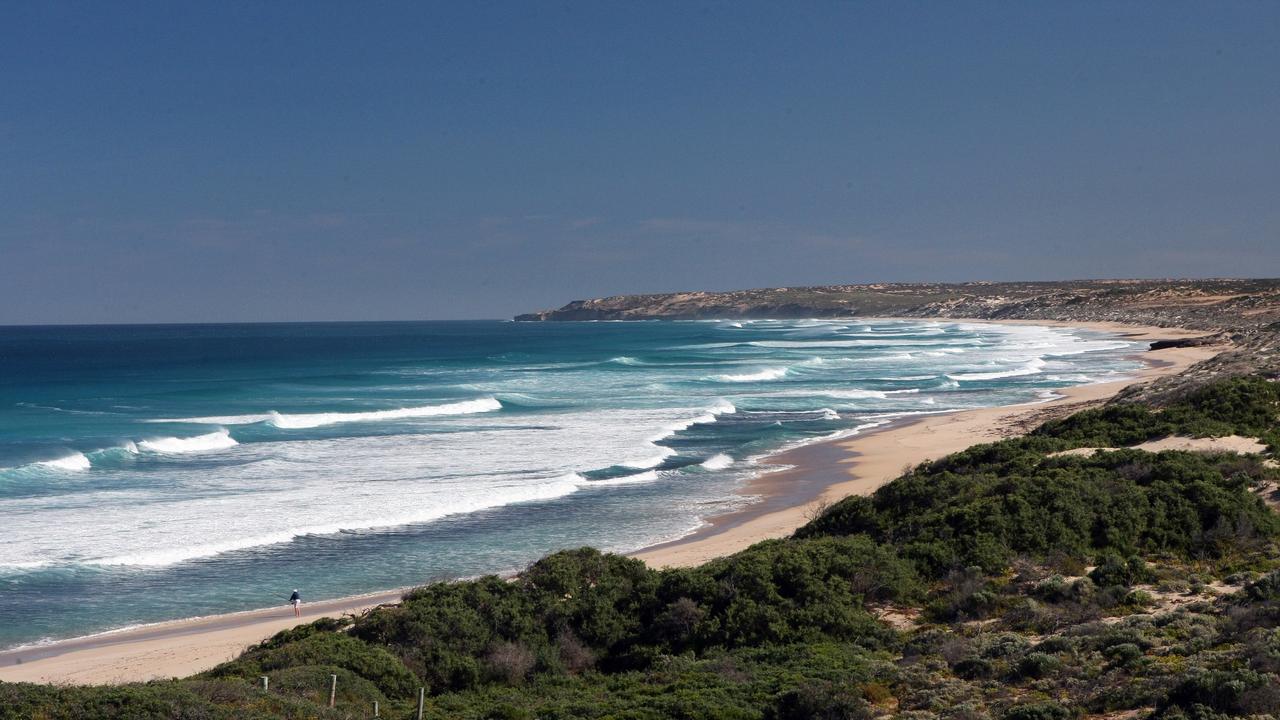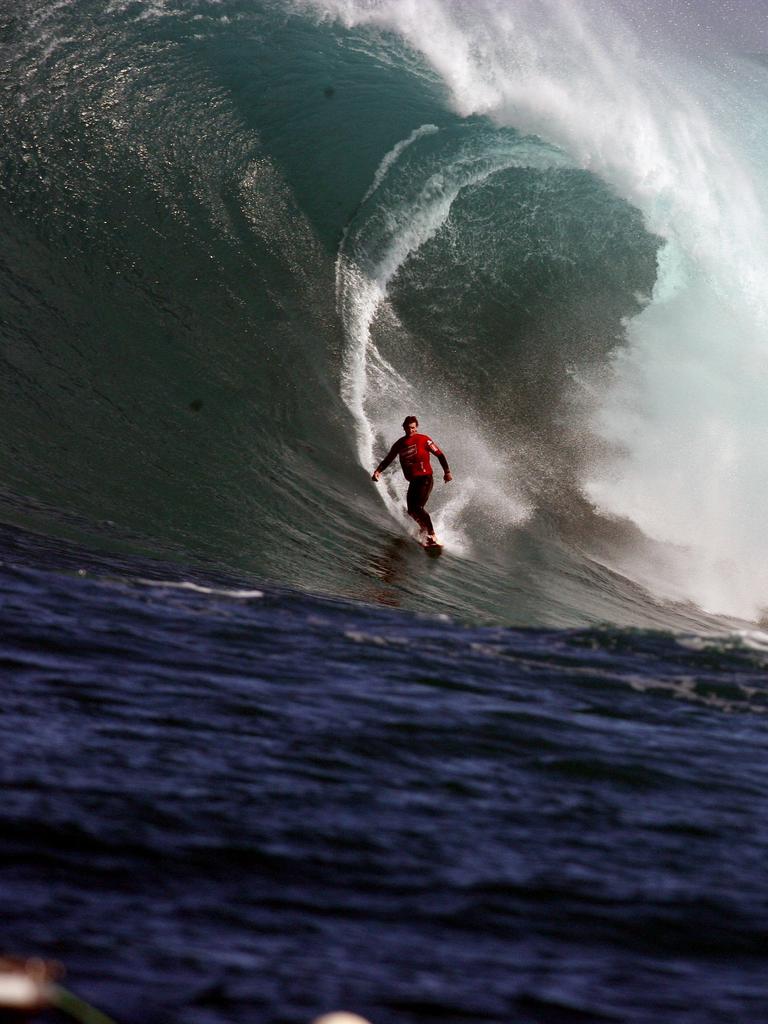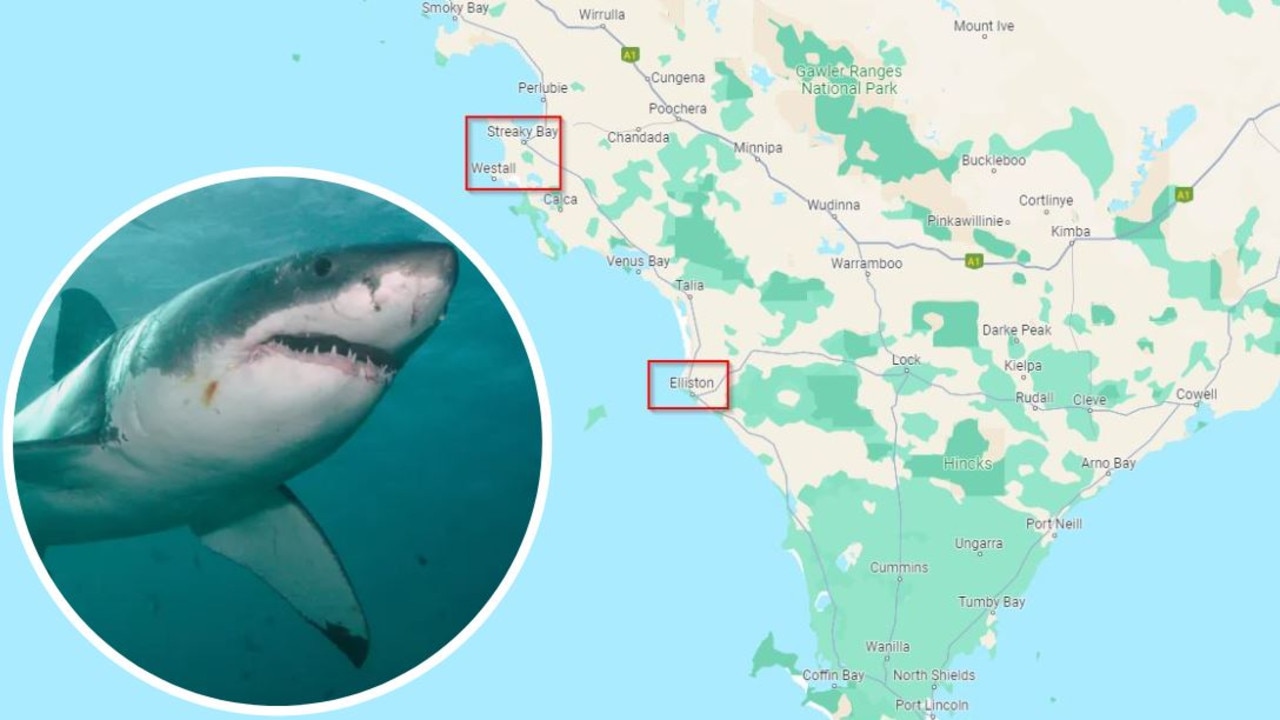Long-term surfer explains why the ‘shaky’ waters at Granite Rock is one of SA’s surfing hot spots
A long-term surfer has explained why hardcore big wave hunters just can’t stay away from Westall Way Loop at Granite Rock – the location where a man was killed by a shark on Tuesday.
SA News
Don't miss out on the headlines from SA News. Followed categories will be added to My News.
The rough seas at Granite Rock near Streaky Bay provide some of the best waves in South Australia.
For that reason, Tuesday morning’s fatal shark where a 55-year-old man was killed won’t deter “hardcore” surfers from the water.
Matt Wright said during his early 20s he surfed the waves at iconic Streaky Bay.
Almost 30 years later, he can still recall the memories – and dangers – of the remote surf spot.
“It’s one of the great waves of South Australia, it’s usually quite a long wave that breaks along a granite rock ledge and can get fairly heavy on big days. Not really for beginners,” said Mr Wright, who is The Advertiser’s creative director.

To get out you either jump off the rocks or paddle out through a small bay.
“As you paddle out, you’re looking into this deep green water and you get this feeling of eeriness,” he said.
“Always in the back of your mind you’re just thinking ‘man this looks sharky as’.
“There’s no seeing the bottom or anything, you’re just looking into this green abyss.”
Mr Wright recalls when local fishermen would share stories of that particular area.
“They said there’s this massive deep hole not far from the surf break and supposedly a breeding ground for sharks like great whites,” he said.


UniSA shark researcher Brianna Le Busque said the Eyre Peninsula was a shark hot spot as they liked to feed in the area.
“They are a species that migrate big distances but on the Eyre Peninsula you’ve got lots of seals,” Dr Le Busque said.
She said great whites were drawn to the area because “the water goes really deep to really shallow quickly”.
While there have been seven reported shark sightings on the Eyre Peninsula so far in 2023, Dr Le Busque said swimmers and surfers would “probably not see it coming”.

South Australia has been “unlucky” for attacks this year, according to Dr Le Busque.
“We do seem to have a bit more activity in SA specifically,” she said.
In particular there are “lots of large female sharks” on the Eyre Peninsula that can grow to up to six metres, she said.
“Quite commonly we see four to five metre sharks,” Dr Le Busque said.
She said while there was no consensus on why sharks killed people, “the most prominent theory is a case of mistaken identity”.
“We can look like a seal from our silhouette underneath the water,” she said.
And while great whites like to feed in deeper waters, “they will come in quite shallow often”.
They most commonly feed at dawn and dusk.
More Coverage
Originally published as Long-term surfer explains why the ‘shaky’ waters at Granite Rock is one of SA’s surfing hot spots








